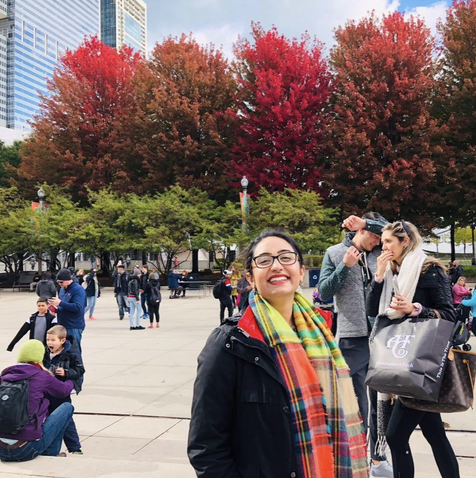Hanyang Lin is a PhD student at Tsinghua-Berkeley Shenzhen Institute (TBSI), Tsinghua University and a visiting scholar at RAEL, UC Berkeley. His research focus on the electricity markets and power flow models in the power system operation. His work builds a linearization method of power flow models considering nozero line shunts, and based on the proposed power flow models, he proposes an optimal operation strategy for distribution system operators (DSO), comprising internal prosumers who engage in P2P transactions, including the theoretical analysis to examine the influence of different P2P trading ratios on the DSO’s optimal operation strategy. He is a member of IEEE Power and Energy Society and INFORMS. Prior to joining TBSI, Hanyang graduated from Imperial College London as a master student.
Jess Carney is interested in understanding how sustainable energy integration impacts power grids and electricity markets. She received her undergraduate degree at Johns Hopkins University in 2018, where she majored in Environmental Science and minored in Applied Mathematics and Statistics. She has held internships at the Independent System Operator or New England (ISO-NE), studying environmental policy and its effect on carbon emissions and energy prices, and at the Vermont Electric Power Company (VELCO), analyzing the impact of high renewable penetration on system stability and integrating state renewable goals into transmission planning procedures.
She has wide-ranging interests that include renewable energy integration, grid stability, energy access, and energy literacy and education.
Guangzhi is a PhD student in Energy Systems Analysis at Tsinghua University. He has bachelor’s degrees in Electrical Engineering and in Management from Tsinghua University. He has been a visiting student at the University of Bath and at the Israel Institute of Technology.
His work is focused on the role of carbon pricing and renewable energy deployment in China.
Guangzhi will be a visiting student at RAEL from October 2019- July 2020.
Current position:
Ph.D student in Electrical Engineering, Tsinghua University.
Meet the Laos Energy Modeling and Policy Analysis (Undergraduate!) Team:
The focus of this inter-disciplinary and inter-university research group is to develop sustainable energy, water, and land-use scenarios for Laos, and to work with local stake-holders on the costs and benefits for communities, the nation, and the regional commerce in energy, water, food, timber and other commodities.
Aaditee Kudrimoti
 Bio: Aaditee is a fourth-year at UC Berkeley studying political science and public policy with a concentration in energy, development, and international relations. Aaditeeis originally from Tucson, Arizona, where she began to develop an interest in international environmental affairs. At UC Berkeley, Aaditeeis working on projects in the political economy of Chinese development finance, rural electrification, and collective action. Aaditeehas become especially interested in how the rise of renewable technology is influencing energy diplomacy around the world. She hopes to pursue a career in academia and public policy and work on governance tools to build the bargaining capacity of LDCs against MNCs, foreign state-owned enterprises, etc. on the subject of FDI and other types of investment. She sees SWITCH-Laos as having the potential to serve as a critical tool in assisting the increase of the Lao people’s bargaining power over FDI in the energy sector and thus their autonomy in determining their own economic development. Outside school, Aaditee’s interests include dance, food journalism, and cooking.
Bio: Aaditee is a fourth-year at UC Berkeley studying political science and public policy with a concentration in energy, development, and international relations. Aaditeeis originally from Tucson, Arizona, where she began to develop an interest in international environmental affairs. At UC Berkeley, Aaditeeis working on projects in the political economy of Chinese development finance, rural electrification, and collective action. Aaditeehas become especially interested in how the rise of renewable technology is influencing energy diplomacy around the world. She hopes to pursue a career in academia and public policy and work on governance tools to build the bargaining capacity of LDCs against MNCs, foreign state-owned enterprises, etc. on the subject of FDI and other types of investment. She sees SWITCH-Laos as having the potential to serve as a critical tool in assisting the increase of the Lao people’s bargaining power over FDI in the energy sector and thus their autonomy in determining their own economic development. Outside school, Aaditee’s interests include dance, food journalism, and cooking.
Alex Lathem
 Bio: Alex Lathem is a third-year undergraduate at Yale University. He is a physics major with several years of experience using programming languages, including Python SQL, C, and Bash, to analyze scientific data. Previous research projects Alex has worked on include astrometry of near-Earth asteroids and the creation of a Hubble curve through the analysis of Type Ia supernovae. Alex spent the summer of 2019 working on the SWITCH model for China, and is very excited to apply the skills he learned there to a version for Laos. Outside of research, Alex is also interested in music, video game design, linguistics, and history.
Bio: Alex Lathem is a third-year undergraduate at Yale University. He is a physics major with several years of experience using programming languages, including Python SQL, C, and Bash, to analyze scientific data. Previous research projects Alex has worked on include astrometry of near-Earth asteroids and the creation of a Hubble curve through the analysis of Type Ia supernovae. Alex spent the summer of 2019 working on the SWITCH model for China, and is very excited to apply the skills he learned there to a version for Laos. Outside of research, Alex is also interested in music, video game design, linguistics, and history.
Ashley Yip
 Bio: Ashley is a second-year undergraduate studying environmental science with an emphasis in global politics. She moved to New Mexico, where she developed an interest in environmental affairs. At UC Berkeley, she is involved in a pre-law association that helped her explore her interest in law and how she may integrate that into environmentalism. Off campus, she is working on a sex education reform project in Singapore with the Ministry of Education. She is constantly exploring the intersection between policy, education, and the environment. She hopes to return home to Singapore and pursue a career in international environmental policy or law within Southeast Asia. Ashley chose to work on SWITCH-Laos not only because greening ASEAN’s economic development is essential to tackling climate change, but also because she is familiar with the demographic. She has done research in regards to both urban and rural agriculture in Asia and the US, and led research for environmental management in business operations. Outside of school, her interests include climbing, hiking, piano, and camper vans.
Bio: Ashley is a second-year undergraduate studying environmental science with an emphasis in global politics. She moved to New Mexico, where she developed an interest in environmental affairs. At UC Berkeley, she is involved in a pre-law association that helped her explore her interest in law and how she may integrate that into environmentalism. Off campus, she is working on a sex education reform project in Singapore with the Ministry of Education. She is constantly exploring the intersection between policy, education, and the environment. She hopes to return home to Singapore and pursue a career in international environmental policy or law within Southeast Asia. Ashley chose to work on SWITCH-Laos not only because greening ASEAN’s economic development is essential to tackling climate change, but also because she is familiar with the demographic. She has done research in regards to both urban and rural agriculture in Asia and the US, and led research for environmental management in business operations. Outside of school, her interests include climbing, hiking, piano, and camper vans.
Rachel Ng

Bio: Rachel is a second-year Environmental Science and Data Science major. A Singapore-native, Rachel describes that SWITCH-Laos extremely important to her because it is an important step towards the energy security of Southeast Asia. She believes that the sustainable electrification of Southeast Asia is key to regional grid stability and energy trade. She is pursuing SWITCH-Laos as critical in leading the way towards sustainable electrification. Rachel is interested in the intersectionality between climate change and community, exploring how community based issues caused by climate change can be alleviated through data. Furthermore, Rachel is currently concerned about equal access to education and volunteers weekly as a mentor to elementary school students. In the future, she hopes to return to Singapore and guide environmental change through creating an ecosystem of sustainable communities and businesses. Her hobbies include dance, rock climbing and water sports.




You must be logged in to post a comment.